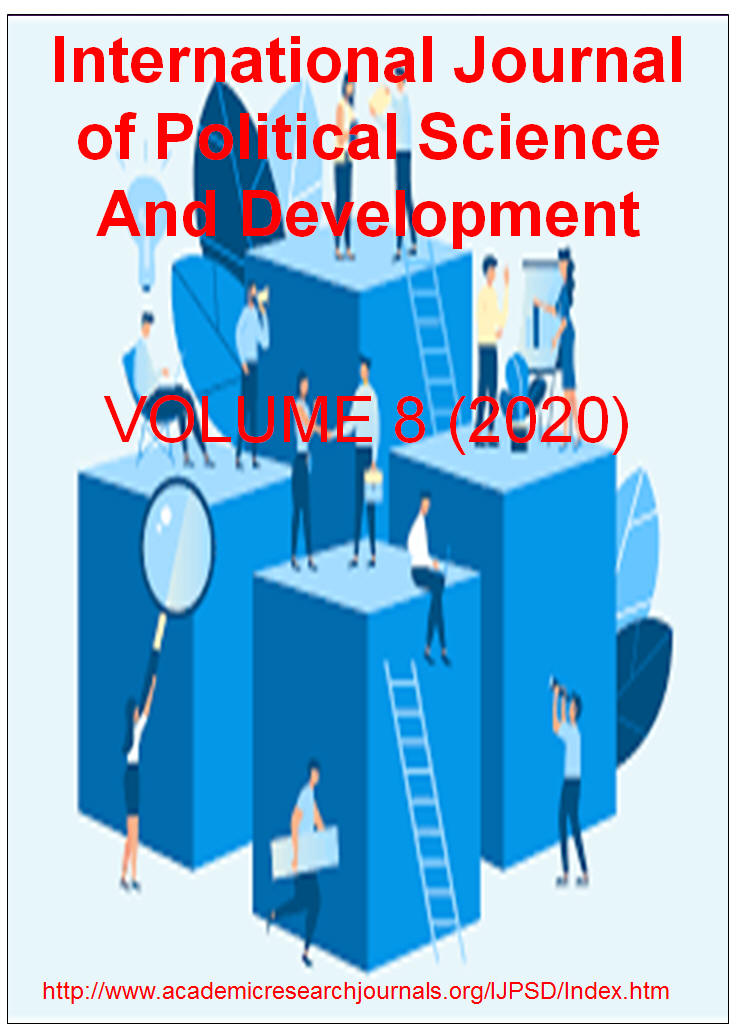|
ISSN: 2360-784X |
International
Journal of Political Science and Development |
|||||||||||||||||
|
International Journal of Political Science and Development Vol. 8(6), pp. 209-221, June, 2020. ISSN: 2360-784X
Review
Nigeria’s Energy and Maritime Security Interests in the Gulf of Guinea for Regional Integration: Challenges and Prospects.
Mustapha, Ayodele Haruna
Department of Social Sciences, Rufus Giwa Polytechnic, Owo, Ondo State, Nigeria. Email address:harunmustapha721@gmail.com
Accepted 10 June 2020
The Gulf of Guinea is Nigeria’s most strategic environment and security interest. It is an area that impinges on several vital aspects of Nigeria’s national security because it is open to hostile incursion by sea particularly on the high seas beyond its territorial waters. Most of Nigeria’s oil resources which account for over 90 percent of its national earnings are exploited offshore. It is vital artery to Nigeria’s trade with the world and its Nigeria’s key to the enormous resources of the ocean bordering its territory which is also contiguous with central African states. Nigeria’s strategic interest in the Gulf of Guinea is informed by the major regional insecurity issues and the smaller territorial disputes that involve significant competing claims to areas rich in energy resources and cross border / piracy matters. Maritime security is the major pressing regional issue for Nigeria particularly in relation to weapon infiltration, oil bunkering and vandalization of oil installations. The widespread availability of small arms and light weapons (SALW) and its impacts on national maritime security constitute the crux of Nigeria’s strategic interest in the Gulf of Guinea. This paper identifies challenges like instability due to poor governance, oil theft and illegal artisanal refining in the Niger Delta, vast expance of water with weak surveillance and unco-ordinated security patrols, piracy and inadequate legal framework for prosecuting criminals when intercepted. It therefore recommends attractive options to criminal activities for young men such as the rebuilding of industries, information and intelligence sharing, adequate training and funding for security forces, regional institutional efforts through inter-regional coordination center for maritime security. This paper adopts regional security complex theory as its theoretical framework to restore the collective security and guarantee regional stability.
Keywords: Energy Security, Maritime Security, Sea Piracy, Sea Power, Territorial Waters.
|
||||||||||||||||||
|
||||||||||||||||||
